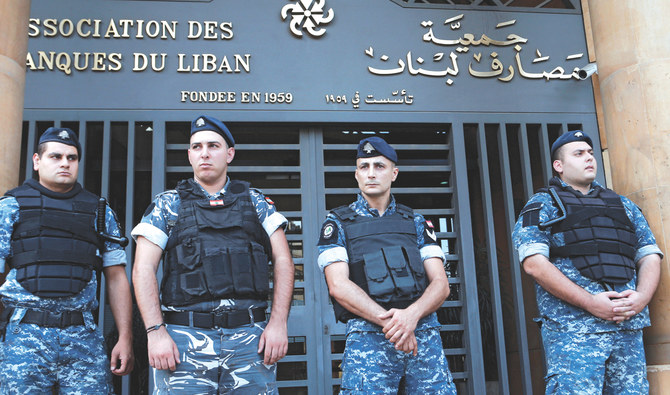jassemajaka@gmail.com

المتظاهرين يحتفظون بأجورهم نظرًا إلى حالة عدم اليقين
[multilanguage_switcher layout = “flags-icons”]
أخبار عربية | ناجية الحصري
شهد اليوم السادس عشر من الاحتجاجات في لبنان تطوراً استثنائياً يوم الجمعة ، حيث أعادت البنوك فتح أبوابها أمام العملاء ، وسط تكهنات حول تأثير المظاهرات على قيمة الليرة اللبنانية.
وشهدت بنوك متعددة أعدادًا كبيرة من الودائع. وقال الدكتور سالم صفير ، رئيس جمعية البنوك في لبنان ، إنه لم يكن هناك اندفاع لسحب الأموال من العملاء. وأضاف: “البنوك تلبي احتياجات المواطنين ، وهي على استعداد لاتخاذ جميع التدابير اللازمة للحفاظ على سير العمل الطبيعي”.
أكد الدكتور نسيب غبريل ، كبير الاقتصاديين ورئيس قسم الأبحاث والتحليل الاقتصادي في بنك بيبلوس ، أنه لم يتم فرض أي قيود على حركة الأموال في لبنان.
وفي الوقت نفسه ، قال الخبير الاقتصادي والخبير الاستراتيجي الدكتور جاسم عجاقة لأخبار عربية إن العمليات في معظم البنوك تقتصر على استرداد الرواتب والتحقق من المعاملات ، في حين أن العمليات المتعلقة بشراء الدولار الأمريكي كانت محدودة.
وأضاف: “في شهر أغسطس ، تم تحويل 1.4 مليار دولار إلى لبنان ، مما يدل على الثقة في الاقتصاد اللبناني. كان عدد المودعين الذين أبدوا رغبة في تحويل أموالهم إلى الخارج محدودًا جدًا مقارنةً بالعدد الإجمالي للودائع في البنوك اللبنانية “.
وأضاف عجاقة أن “الأسباب السياسية” كانت تثير الشائعات حول احتمال حدوث تدهور في الوضع المالي نتيجة للمظاهرات ، وأن: “النزاع السياسي في البلاد (قد) امتد إلى مجالات مختلفة ، بما في ذلك القطاع المصرفي “.
حافظ الدولار الأمريكي على استقراره في بورصة بيروت ، وأغلق عند سعر متوسط قدره 1507.50 ليرة لكل دولار ، وفقًا للبنك المركزي اللبناني. ومع ذلك ، فإن إعادة فتح الطرق والمؤسسات العامة والخاصة ، بما في ذلك المدارس والجامعات ، لم يمنع المحتجين من مواصلة أنشطتهم.
من المتوقع أن تستعيد الاحتجاجات زخمها خلال عطلة نهاية الأسبوع ، بعد أن اقتحمت مجموعة من المتظاهرين مقر جمعية المصارف في الجميزة في بيروت ، وأغلقت مدخلها الرئيسي. وقرأت المجموعة بيانًا تتهم فيه الجمعية “بحماية أصول وأموال النخبة السياسية ضد مصالح الفقراء”.
ودعا إلى “تحويل القروض السكنية والقروض الشخصية إلى الليرة لتحرير الفقراء من القروض بالدولار الأمريكي” ، وكذلك إعادة جدولة القروض الشخصية لتحرير الناس من أسعار الفائدة المرتفعة واسترداد الأموال “المنهوبة” من قبل البنوك من خلال “الأرباح المتراكمة بشكل غير قانوني.”
ثم اندلعت مواجهات خارج المبنى بين المحتجين وقوات الأمن التي اعتقلت أربعة أشخاص. قُبض على ناشط خامس وهو يقترب من سيارة الشرطة حيث وُضع الأربعة الآخرون. تم إطلاق سراحهم جميعا في وقت لاحق.
وقالت وزيرة الداخلية ريا الحسن لشبكة سي إن إن “التجمعات في الشوارع كانت بمثابة دعوة للاستيقاظ لجميع الأحزاب السياسية ، بما في ذلك حزب الله ، الذي تأثرت قواعده الشعبية بالتراجع الاقتصادي”.
وأضافت: “كان الذين خرجوا إلى الشوارع من طلاب الطبقة المتوسطة ، والشابات وربات البيوت. لقد كانوا أشخاصاً يدعون بصورة مشروعة إلى التغيير ، دون أي معلومات قوية حول أي تدخل أجنبي في المظاهرات “.
وقالت الحسن إن المظاهرات حققت نصرًا نسبيًا من خلال استقالة رئيس الوزراء سعد الحريري ، قبل الدعوة إلى ترشيحه مجددًا كرئيس لحكومة تكنوقراط.

